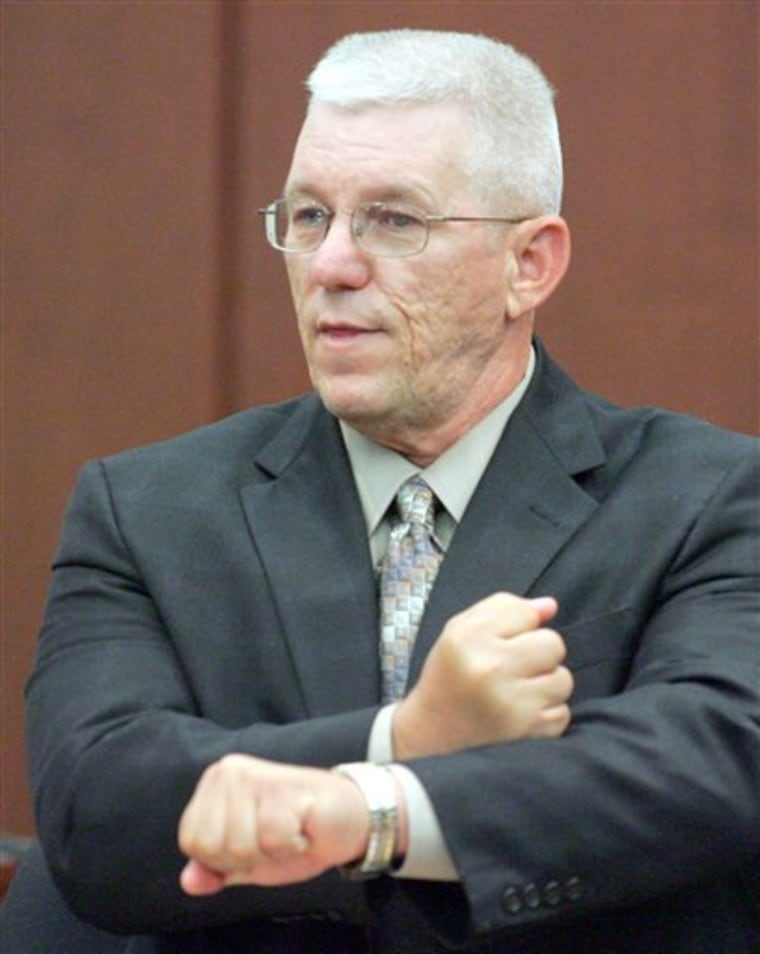A juvenile boot camp supervisor charged with killing a 14-year-old boy testified Tuesday that guards would have stopped hitting the unresponsive teen if he just kept exercising.
"At any time he could have walked, got up, finished the run," guard Charles Helms said when a prosecutor asked him how Martin Lee Anderson could have gotten out of the situation.
Helms is the highest ranking of seven ex-guards and a nurse on trial for manslaughter. Guards repeatedly hit the boy and forced him to inhale ammonia after he collapsed while running laps at the camp in January 2006. The nurse stood by watching the videotaped altercation. Anderson died early the next day at a hospital.
Prosecutors say the guards suffocated Anderson by covering his mouth and forcing him to inhale ammonia fumes. Guards say they were just following camp procedures to restrain him because he was uncooperative.
Helms said he did not initially see Anderson's condition as a medical emergency and his main concern was to get the teen to comply with orders. He said Anderson showed "signs of life" throughout the altercation.
Defense attorneys also say the death was unavoidable because he had undiagnosed sickle cell trait, a genetic blood disorder. The usually benign disorder can cause blood cells to shrivel into a sickle shape and limit their ability to carry oxygen under physical stress, but prosecution witnesses have testified that Anderson would have died even without the disorder.
Not all of medical history disclosed
Prosecutor Mike Sinacore asked Helms if he provided paramedics and emergency room doctors with the details about what happened to Anderson.
"When the paramedics arrived you did not tell them about all the times Martin Lee Anderson had fainted," Sinacore asked Helms.
Helms said he did not.
"You did not tell them about all the time you applied ammonia and the nurse did not tell them in your presence about the ammonia. You did not tell them you covered his mouth when you applied the ammonia. You told them he was exercising and he collapsed," Sinacore said.
Helms said that was correct.
Sinacore also questioned Helms about errors in his report on the encounter. Helms said they were because he was in shock and hadn't slept in two days. He traveled from the Panama City boot camp to the Pensacola hospital where Anderson died early the morning of Jan. 6, 2006.
Sinacore said the report excluded details about exactly how numerous ammonia capsules were used, how many times Anderson fainted and exactly what Helms did to the teen.
"At the time you wrote this report you knew Martin Lee Anderson's death would be investigated, you knew the Florida Department of Law Enforcement would be involved. Obviously everyone was going to have questions," Sinacore asked Helms.
"Sir, I had no excuse for that form," Helms said, adding that he was affected by "everything that was going on" and couldn't remember all details because he was tired.
